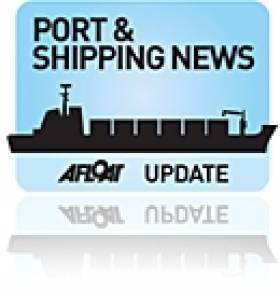Displaying items by tag: Afloat Shipping Review
Ports & Shipping Review: Self-Stevedoring First, Sands at Europort, Port Purchased, A Dredging Dilemma, Stena Superfast X and HSS? plus Marine Energy Jobs
#Ports&ShippingReview: Over the last fortnight, Jehan Ashmore has reported on the shipping scene, where Ecocem which has a plant in Dublin Port was issued the first self-handling stevedoring licence to enable unloading ships to cut costs.
Sospan Dau, a Dutch dredger started a €1.4m project in Rosslare Europort to remove 100,000m3 of sand generated by winter storms along the ferryport's breakwater.
Burke Shipping Group which acquired Greenore Port, thought to be in the region of €5m, will see the Co. Louth facility strategically located between Dublin and Belfast as the state's first significant port privately-owned.
A similar figure of €5m has been quoted for dredging Sligo Harbour, which poses a vexed question for Sligo County Council as there is doubt if such investment could be recovered from the harbour.
Since Stena Line confirmation to introduce the 'Superfast X' ferry on the Dublin-Holyhead route in early 2015, this poses the viability of the Dun Laoghaire-Holyhead service reopening?... let alone operated by a 'HSS' type fast-ferry?
At the "Cork Harbour Energising the Region" conference attended by Minister for Energy, Simon Coveney yesterday at the National Maritime College of Ireland, to highlight the role of various marine sectors, the minister announced 80 marine energy jobs.






























































